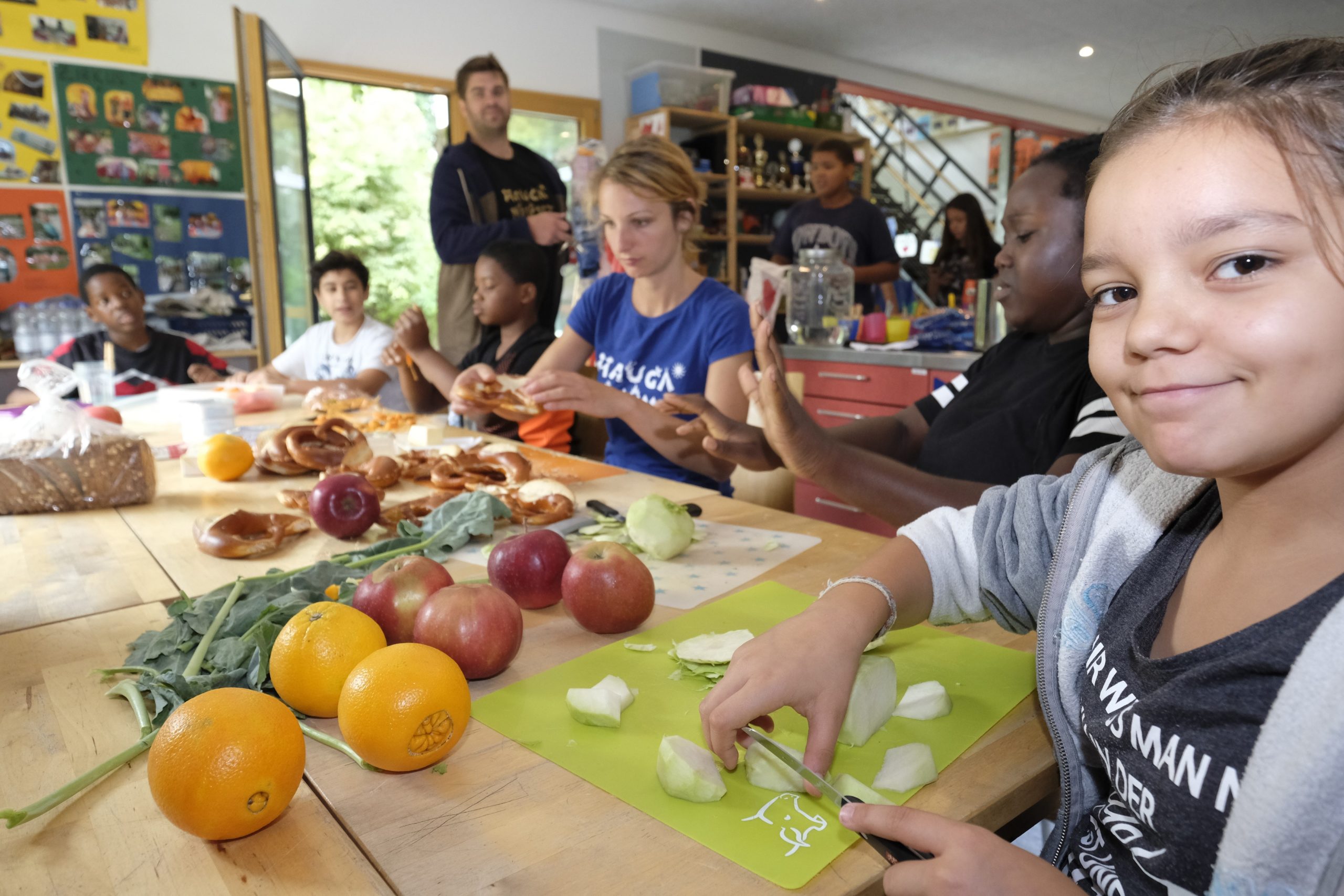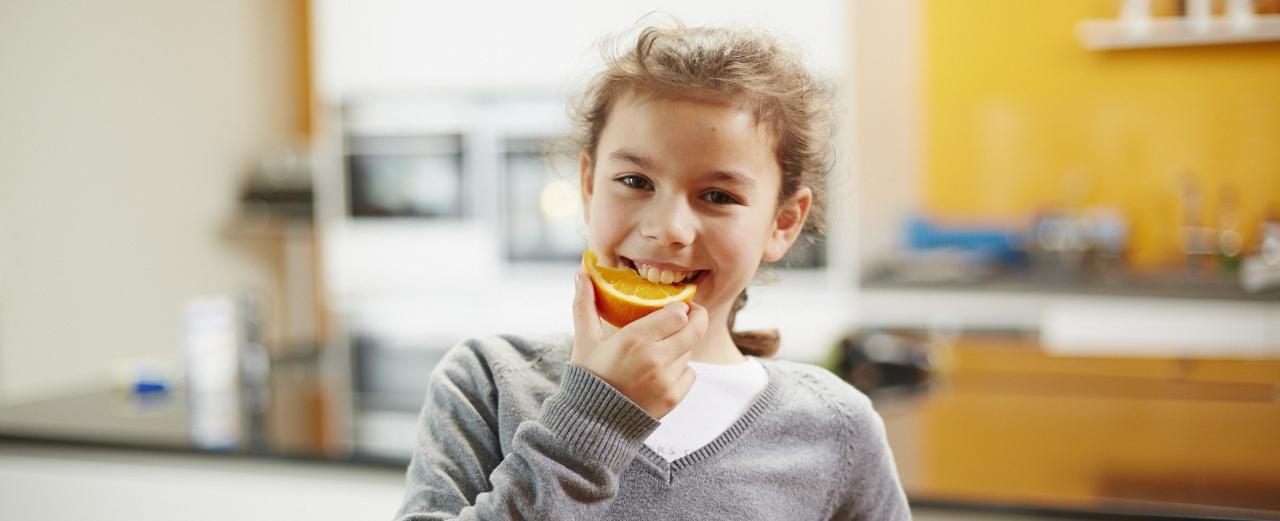 Small meal – big impact!
Small meal – big impact!
Child poverty in Germany
When Mateo and his sister Vanessa leave their home, their poverty is not immediately apparent. They do not wear torn clothes, they have toys and go to school on a regular basis. Only upon looking a little closer look does it become noticeable that the two siblings do not get a balanced diet and are not in the best of health; they have fewer educational opportunities and suffer from social exclusion. Like Mateo and Vanessa, 2.7 million children in Germany are affected by poverty (5th Report on Poverty and Wealth of the Federal Government, 2017). Support from the community can help them to improve their situation. Examples of such an enabling environment are open child and youth institutions organizations that offer guidance to children like Mateo and Vanessa as they grow up and where they can take part in many free leisure and educational activities after school and get healthy meals. Together with the teachers, they do their homework, are supported and strengthen their their everyday life skills.
Necessity
Food and nutritional competency for children affected by poverty in Germany.
Activity
At the open children and youth facilities, educators prepare small meals together with the children and young people and eat with them.
Countable effort
Number of small meals prepared and eaten by the children.
Result
Children eat a healthy diet, are able to concentrate better and expand their knowledge of nutrition.
Systemic effect
The development opportunities of children affected by poverty in Germany improve.
Background
Child poverty is one of the greatest social challenges in Germany. According to the official reports of the German Federal Government, 2.7 million children are currently growing up in poverty (5th Poverty and Wealth Report of the Federal Government, 2017). In other words, every fifth child in Germany. A long-term study commissioned by the Bertelsmann Foundation shows that it is unlikely that children will rise out of such circumstances of poverty (Tophoven et al., 2017). For the children affected by poverty, serious effects can be seen in all essential areas of life. These include areas of basic provision such as food, clothing, health, housing or the child’s bedroom. But the social contacts of children and their behaviour in interpersonal relationships are also influenced by poverty (Chassé, 2010). The children in question often lack important experiences which are taken for granted by many other children and adults. These include, in particular, the absence of moments of light-heartedness in a life burdened by numerous worries and fears. Due to their poverty, these children experience social exclusion, which often turns them into long-term outsiders in our society.
The good deed
Your good deed makes it possible to provide poverty-stricken children and young people in German cities with a healthy meal. With your support, they learn to cook something healthy and eat together after school in a youth welfare service organization. This meal allows them to not be hungry and to be receptive to the variety of afternoon activities offered by the organization. These include sports and music projects and often homework assistance. The tutoring helps the children to follow up on the lessons of the week in order to be able to keep up with the lessons at school. Since most families cannot afford tutoring, the open children and youth facilities are important places to go to for these children.

AboutGermany
Berlin
Capital
83.132.800
Number of inhabitants
46.946 $
Gross domestic product per capita per year
Placed 4th out of 189
Human Development Index
Among single parents in Germany, the poverty rate is by far the highest at over 40 per cent. This most of all affects women, who make up 90 per cent of this group. (Aust et al., 2018)
About the organization and further information
Association
Children for a better World e.V.
Bei der Berechnung der Werbe- und Verwaltungskosten richten wir uns nach den Definitionen des DZI-Spendensiegels


Further information and source
- Aust, A. et al., 2018. Wer die Armen sind – Der Paritätische Armutsbericht 2018, Der Paritätische Gesamtverband, Berlin.
- Bundesministerium für Arbeit und Soziales, 2017. Lebenslagen in Deutschland, Fünfter Armuts- und Reichtumsbericht der Bundesregierung, Berlin.
- Chassé, K. A., 2010. Kinderarmut in Deutschland, in: Armut in Deutschland, APuZ 51–52, Bundeszentrale für politische Bildung, Bonn.
- Funcke, A. et al., 2016. Factsheet zu Kinderarmut – Kinder im SGB-II-Bezug in Deutschland, Bertelsmann Stiftung, Gütersloh.
- Laubstein, C. et al., 2019. Wenn Kinderarmut erwachsen wird … AWO-ISS-Langzeitstudie zu (Langzeit-)Folgen von Armut im Lebensverlauf, Institut für Sozialarbeit und Sozialpädagogik, Frankfurt a. M.
- Tophoven, S. et al., 2017. Armutsmuster in Kindheit und Jugend – Längsschnittbetrachtungen von Kinderarmut, Bertelsmann Stiftung, Gütersloh.




